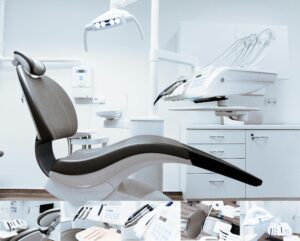Soda water, also known as sparkling water, is a popular choice for those seeking a fizzy alternative to sugary drinks. But have you ever wondered about the impact of soda water on your dental health?
This article aims to shed light on the effects of soda water on teeth. We’ll delve into the science behind carbonation and its interaction with your oral health.
We’ll also compare the acidity levels of soda water with other common beverages. Understanding these factors can help you make informed decisions about your drink choices.
We’ll explore the signs of dental erosion, a potential consequence of frequent soda water consumption. Plus, we’ll provide practical tips on how to enjoy your fizzy drinks without compromising your teeth’s health.
Join us as we debunk myths, provide evidence-based information, and guide you through the relationship between soda water and teeth health. Let’s make your beverage choices healthier and your smiles brighter.
Understanding Soda Water and Its Ingredients
Soda water is simply water with added carbon dioxide gas. This carbonation gives it the familiar fizz and tingle that many people enjoy.
Unlike sugary soft drinks, soda water is typically calorie-free and doesn’t contain sweeteners. However, some varieties may include natural flavours or citric acid, which can influence acidity levels. It’s important to check labels for any added ingredients that might affect your dental health. These additives might enhance taste but could also increase the beverage’s potential to harm tooth enamel.
The Chemistry of Carbonation and Teeth
When carbon dioxide dissolves in water, it forms carbonic acid. This weak acid creates the refreshing fizz but can also pose a risk to teeth.
Carbonic acid can lower the pH of the mouth temporarily, contributing to an environment that promotes enamel erosion. The harder the enamel is hit by acids, the more it breaks down over time. Though not as acidic as soft drinks, the cumulative effect of drinking soda water should not be ignored for strong teeth.
Comparing Acidity: Soda Water vs. Other Beverages
Beverages vary in acidity, impacting their potential to erode enamel. Understanding these differences can help you choose drinks wisely.
- Soda Water: pH typically between 3 and 4.
- Soft Drinks: Often have a pH of less than 3.
- Plain Water: Neutral pH of 7, no erosion risk.
Soda water is less acidic than sugary sodas but more so than tap water. This balance makes it a better option than soft drinks, but moderation remains key to protecting your enamel from acid wear.
The Effects of Soda Water on Tooth Enamel
Tooth enamel is your teeth’s protective shield and withstands daily wear. However, it’s vulnerable to acid erosion caused by fizzy drinks like soda water.
Frequent exposure to carbonation can weaken enamel over time. Unlike sugary sodas, soda water typically lacks sugars that feed bacteria, but its acids still pose risks. Once enamel is compromised, it doesn’t regenerate. This erosion can lead to increased sensitivity, making you aware of the impact this seemingly harmless beverage can have.
Recognising the Signs of Dental Erosion
Identifying early signs of dental erosion is crucial for prevention. One symptom is tooth sensitivity, particularly to hot or cold foods.
Discolouration may occur as enamel wears thin, revealing underlying dentin. You might notice a yellowish tint. Furthermore, teeth might appear rounded or even slightly translucent at the edges. These changes indicate enamel loss, highlighting the need for prompt dental attention if symptoms persist.
How to Enjoy Soda Water Without Harming Your Teeth
Soda water can be a refreshing alternative to sugary soft drinks. It’s important, however, to consume it wisely to protect your dental health. Moderation is key.
Regularly mixing your fizzy drink intake with plain water can help balance acidity. This simple habit reduces the erosive effects on tooth enamel. Being mindful of when and how often you consume soda water can make a significant difference.
Practical Tips for Protecting Your Teeth
To minimise the impact of soda water on your teeth, consider these practical steps. First, drink through a straw to limit contact with your teeth. This reduces the likelihood of acid attacks on your enamel.
Second, rinse your mouth with water after enjoying soda water. This washes away acids and helps maintain a balanced pH level. Another effective tip is to wait at least 30 minutes before brushing your teeth. Brushing immediately after consuming acidic beverages can exacerbate enamel erosion.
Finally, enhance your enamel’s resilience by using fluoride toothpaste. Regular dental check-ups and professional fluoride treatments can also reinforce your teeth. Here’s a list to keep in mind:
- Use a straw when drinking
- Rinse with water afterwards
- Wait before brushing
- Use fluoride toothpaste
These steps can help you enjoy soda water responsibly without compromising your dental health.
Alternatives to Soda Water for Dental Health
If you’re seeking alternatives, there are healthier options to consider. Herbal teas, for example, provide flavour without risking your teeth.
Infused water is another great choice, offering natural sweetness with minimal acidity. This makes it tooth-friendly, unlike many flavoured sparkling waters.
If you crave fizziness, consider mineral waters with a higher pH. These are less likely to affect enamel. By choosing wisely, you can enjoy refreshing beverages without compromising your dental health.
Expert Insights and Recent Research
Dental experts often emphasise the significance of beverage choices on oral health. They suggest that knowledge about drink ingredients and acidity is crucial. Understanding this can help individuals protect their teeth effectively.
Recent studies have focused on the effects of carbonated beverages, including soda water, on dental health. The research has confirmed that carbonation forms acids that can erode enamel. Such findings highlight the need for moderation and preventive practices in daily consumption.
These insights encourage informed decisions about fizzy drinks and reinforce the importance of regular dental visits. Through awareness and action, individuals can safeguard their teeth against possible damage from sparkling water.
Conclusion: Balancing Enjoyment and Dental Health
Incorporating fizzy drinks like soda water into your lifestyle doesn’t necessarily mean compromising dental health. Understanding the impact of carbonation and acidity allows you to make better choices.
Moderation is key. By limiting intake and practicing good oral hygiene, you can enjoy sparkling water without significant risk to your teeth. Smart habits like rinsing with water and using a straw can further protect enamel. Always consult your dentist for personalised advice. Balancing enjoyment with proactive care ensures your smile remains healthy and bright for years to come.








